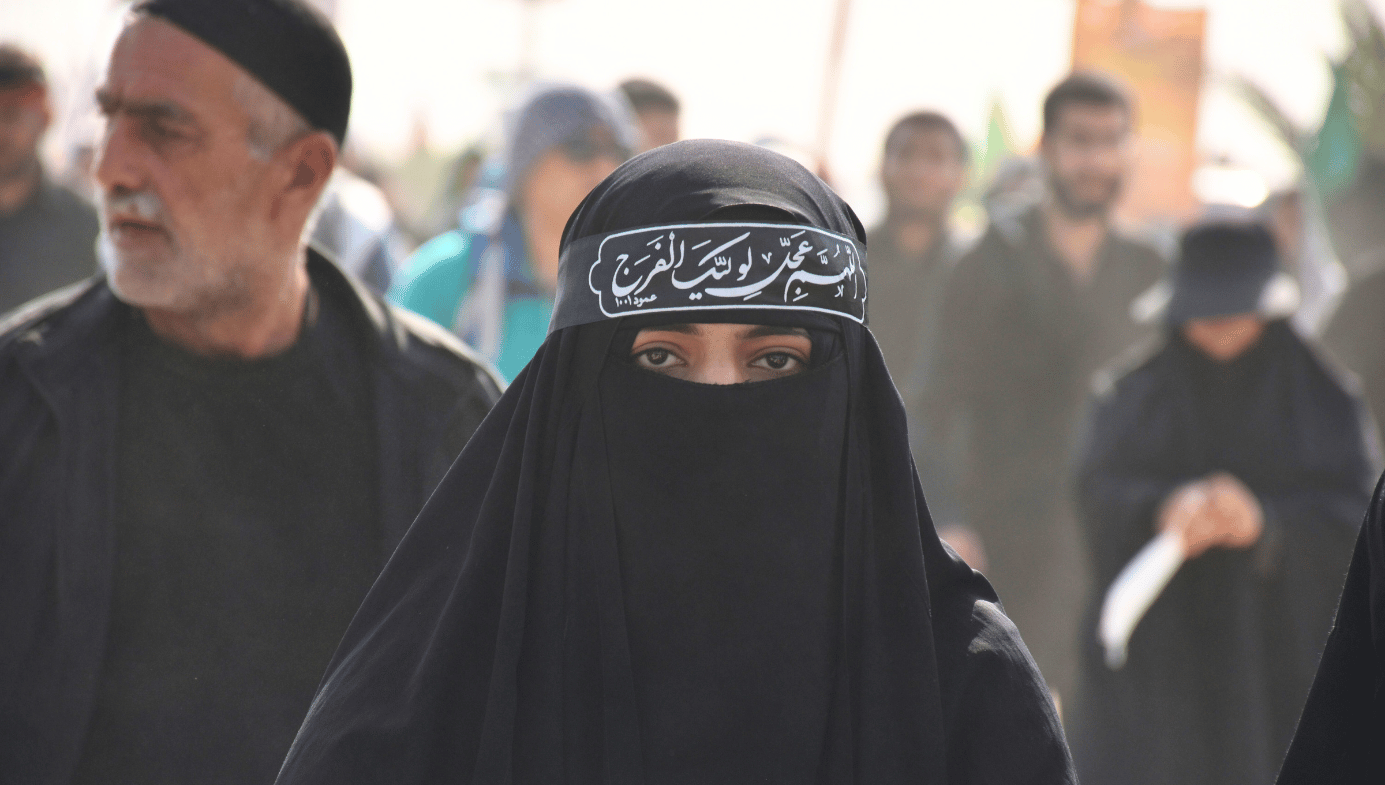Islam
The Problem Is Islam—Not Islamism
The problem here is not a subset of Islamic thought, but the fundamentals of Islam itself.

I first heard the word “Islamism” in a video of a 2010 debate between Maajid Nawaz, Zeba Khan, Douglas Murray, and Ayan Hirsi Ali. Nawaz explained that he used the term “Islamism” to denote an ideology that advocates establishing Islamic supremacy and “Islamist” to describe anyone who wants to further that aim. This terminology allowed him, he argued, to distinguish between moderate and fundamentalist Muslims. But it is telling that we do not make this distinction with regard to any other religion. In his choice of lexicon, Nawaz was applying a double standard. He wanted to avoid tarring all Muslims with the same brush, but this could have been done by using qualifiers such as “fundamentalist,” “extremist,” or “radical.”
One of the reasons Nawaz offered for this choice was that he wanted to educate Westerners about the differences within Islam. But this goal would be better served by adapting terms with which Westerners are already familiar in a Judeo-Christian context. For example, Nawaz could have described organisations like the Council on American-Islamic Relations (CAIR) in the US and 5 Pillars in the UK as the equivalent of Evangelical Christian groups, who try to influence national policy in support of their religious beliefs. (CAIR has lobbied for such things as the introduction of sharia family courts and Islamic-compliant banking services and the encouragement of hijab.) Instead, Nawaz introduced a new term to an audience that was perhaps already confused.
If Nawaz thought that using “Islamism” instead of “Islam” to differentiate between peaceful, moderate, and fundamentalist versions of Islam would enable people to avoid being accused of Islamophobia, he was wrong. To those eager to discredit valid criticisms of Islam as racist—or who genuinely believe that such criticisms are motivated by bigotry—the change of terminology is likely to seem like merely a sleight of hand. Indeed, in 2010, CAIR stated that “Islamist is largely used to describe any Muslim individual or movement at odds with the agenda of those using the pejorative term.” Likewise, comedian Frankie Boyle recently tweeted: “If I see the word Islamist, I just assume I’m about to read the incoherent ramblings of a crazed racist.”
If I see the word Islamist, I just assume I’m about to read the incoherent ramblings of a crazed racist
— Frankie Boyle Updates (@frankieboyle) February 23, 2024
My own family and their close friends are moderate Muslims by any measure. Yet they certainly believe in Islamic supremacy. As I grew up, they often told me that Islam would eventually spread across the whole world, and everyone would become Muslim. They didn’t say that they would help to make this happen themselves, nor did they try to convince my siblings and me to proselytise, let alone to take part in violent jihad. They just took it for granted that Islam would come to dominate the globe. If you call that belief “Islamism,” which you see as an extreme version of Islam, you will have little hope of understanding how Muslims like my family see the world.
Over the past decade or so, the definition of the term “Islamism” has evolved. At first, it meant creating a society based on sharia, using political means. Then it slowly began to change to mean a desire to create an Islamic society using any means, including violence. But since we already have the terms “theocracy” and “theocrat,” why do we need new words, specific to Islam, to describe this ambition?
To use “Islamist” to mean simply someone who wants to spread Islam—by any means, peaceful or otherwise—is to equate Hamas and ISIS with CAIR. Whatever you feel about CAIR’s ideological leanings, it is a political group, not a terrorist one.
In many Islamic countries, girls as young as nine can be married to men decades older than them. This is not “Islamism”; it is Islam. Muhammad married Aisha when she was six and consummated the marriage when she was nine. The governments of Iran, Yemen, and a host of other countries use the reasoning that if The Prophet, the most perfect of humans, married his bride when she was six, it must be acceptable for Muslim men to marry pre-pubescent girls. Pretending that this practice is peripheral to Islam will not help us to solve the problem.

Hijab and veiling are Islamic practices—not signs of “creeping Islamism.” While some Muslim countries have banned the face veil due to security concerns, none have banned the hijab, and several countries enforce the hijab by law. To argue that mandatory hijab is an Islamist practice is to obfuscate the issue. Hijab is part of Islam itself and we need to deal with it on those terms. Ordinary Muslims who do want to spread sharia may also impose the hijab on the women in their families.
Islam is a totalitarian religion; it aspires to control every aspect of Muslims’ lives. There are rules about which foot you should use to walk into your home and to enter every room. There are rules about how to drink water. Many of these rules come from the Hadiths and show how to emulate Muhammad. Given that Islam controls life down to this level of minutia, it is mistaken to believe that the mandates from the Quran that Islam should be supreme are somehow not Islam itself but something else called “Islamism.” To describe the more pernicious aspects of Islam as “Islamism” is not to treat Islam as seriously as we should.
The term “Islamist” deflects from the fact that violent extremists have goals that are Islamic. The problem here is not a subset of Islamic thought, but the fundamentals of Islam itself. Uganda recently passed laws outlawing homosexuality. This illiberal and inhumane authoritarianism was not ascribed to “Christianism,” but to the influence of evangelical Christianity. “Islamism” is a weasel word. It allows apologists to downplay the effects of Islamic teaching and practice. Theocratic governments like those in Pakistan, Iran, and Afghanistan are not “Islamist.” They are Islamic. They pass laws and institute policies that conform to Islamic teaching.
Islamic doctrine separates the world into the House of Islam, Dar al Islam, and the House of War, Dar al Harb. ISIS, Al Qaeda, Hamas, and other Islamic terrorist groups are fighting to expand the reach of Dar al Islam, as mandated by the Quran. We should fight them on the basis of their actions and understand that what motivates those actions is a literal reading of Islamic scripture—not muddy the waters by conflating Islam with Islamism.






